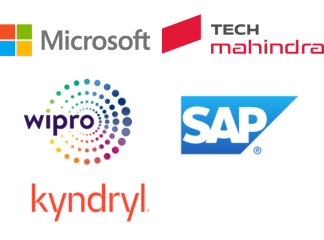Original Equipment Manufacturers (OEM) & Dealer Benefits

Excellon Contributors
The automotive sector is undergoing a significant shift, and Dealer Management Systems (DMS) are playing a central role in this evolution. With the global DMS market valued at $5.2 billion in 2024 and forecasted to reach up to $15.2 billion by 2037, manufacturers and dealerships are realizing the importance of adopting advanced systems.
OEMs face an average annual loss of $3.5 million due to excess inventory, while dealerships miss out on 15–20% of potential sales from stockouts. Integrated DMS platforms are reshaping how OEMs and dealerships manage operations, inventory, and customer engagement.
What is a Dealer Management System?
A dealer management system is a comprehensive software platform that integrates and automates sales, inventory, finance, service, and customer relationship management functions. Think of it as the central nervous system of dealership operations, orchestrating multiple business processes across departments. In simple terms, a DMS covers everything a dealership needs to operate efficiently, including:
- Managing customers and sales opportunities
- Tracking vehicles and inventory
- Running service and workshop activities
- Controlling spare parts stock
- Handling billing and financial processes
Modern DMS platforms have evolved from isolated thick client setups to centralized cloud-based systems. Newer versions incorporate AI, IoT, and advanced analytics, making them adaptable to real-time business needs. Many businesses compare cloud versus on-premise DMS options, each offering distinct advantages in cost, speed, and control.
A Well-Integrated Dealer Management Software: The Foundation for OEMs and Dealers
A strategically designed automotive DMS ecosystem creates a structured, technology-driven framework that benefits OEMs and dealers. By integrating business objectives with advanced digital solutions, organizations can enhance customer satisfaction, improve operational resilience, and build long-term success.
Comprehensive Benefits for OEMs
1. Real-Time Visibility and Control
DMS provides manufacturers with complete visibility into dealer performance and inventory levels. Reports suggest up to 40% improvement in operational efficiency, enabling better forecasting and demand planning.
2. Cost Optimization and Efficiency
3. Strategic Market Advantages
Dealer Management Software enables consistent brand representation across dealer networks. With better control over warranty management and customer service standards, OEMs can coordinate with dealerships more effectively for improved market reach and customer satisfaction.
Transformational Benefits for Dealerships
1. Operational Excellence
2. Customer Experience Enhancement
CRM integration enables dealerships to personalize customer interactions. Faster service appointments and accurate parts availability translate into improved customer satisfaction and repeat business.
3. Financial Performance
Transformational Benefits for Dealerships
1. Next-Generation Capabilities
2. Competitive Differentiation
Around 67% of car dealers believe AI contributes positively to their operations. From predictive maintenance to smart scheduling, AI tools are improving customer service and driving loyalty. Some systems are already combining traditional statistics with reinforcement learning models to improve accuracy over time.
Explore Further: When Is the Right Time to Upgrade Your Dealer Management Software?
AI-Powered Dealer Management System: The Future Advantage
1. Next-Generation Capabilities
2. Competitive Differentiation
Around 67% of car dealers believe AI contributes positively to their operations. From predictive maintenance to smart scheduling, AI tools are improving customer service and driving loyalty. Some systems are already combining traditional statistics with reinforcement learning models to improve accuracy over time.
Cloud vs On-Premise DMS Decision Framework
1. Strategic Comparison
Cloud-based DMS platforms can be deployed within weeks, whereas on-premise systems often take months. Cloud solutions offer lower upfront investment and dynamic scalability. On the other hand, on-premise options provide more control and can align with strict regulatory environments.
2. Decision Matrix by Business Type
- Small to Medium Dealerships: Benefit most from cloud models
- Large Enterprise Networks: May consider hybrid solutions
- Highly Regulated Markets: On-premise can meet compliance needs better
Implementation Success Strategies
1. Overcoming Challenges
2. ROI Optimization Framework
Case Study: Real World Success: How a German Automotive Leader Scaled Its 2-Wheeler Business with Excellon DMS
Future Trends and Market Outlook
With a projected CAGR of 8.9–10.9% through 2034, automotive DMS platforms will continue to evolve. IoT, advanced analytics, and omnichannel sales tools are expected to drive further innovation.
A structured digital transformation journey includes:
Phase 1: Core DMS implementation
Phase 2: AI and analytics adoption
Phase 3: IoT integration and advanced connectivity
Final Thoughts
Integrated Dealer Management Solution offer tangible benefits for both OEMs and dealerships. From improving operational efficiency to enhancing customer satisfaction, these systems provide measurable ROI and strategic value. Businesses evaluating automotive DMS solutions should assess readiness, outline realistic timelines, and choose partners who understand both sides of the automotive ecosystem.
To stay competitive in today’s automotive sector, adopting a future-ready Dealer management system is no longer optional. It is a strategic imperative.
You may also Like

The Role of Integrated Call Center Management in Modern Dealer Management Systems
Integrating call center management into the Dealer Management System (DMS) helps eliminate these gaps. It connects front-end conversations with back-end processes, allowing dealerships to manage every…

How to Improve After-Sales Service & Customer Satisfaction with Dealer Management System
After-sales service is no longer a support function that begins after product delivery in the automotive sector, where products involve long-term use and significant investment, customers expect more than a one-time sale.…

How a Modern DMS Can Boost Sales & Customer Satisfaction in the Middle East
The automotive retail industry in the Middle East (UAE, Saudi Arabia, Qatar, Kuwait, Oman, Bahrain) is built around long-term relationships, brand legacy, and high customer expectations. From exclusive distributorships to multi-brand...




